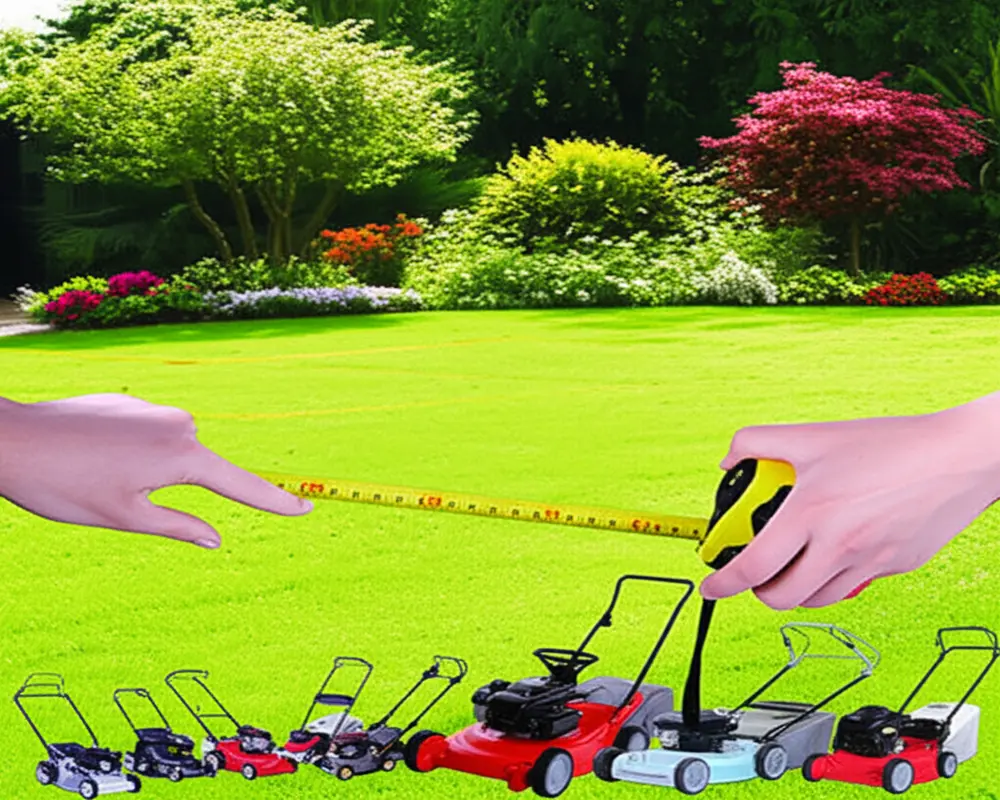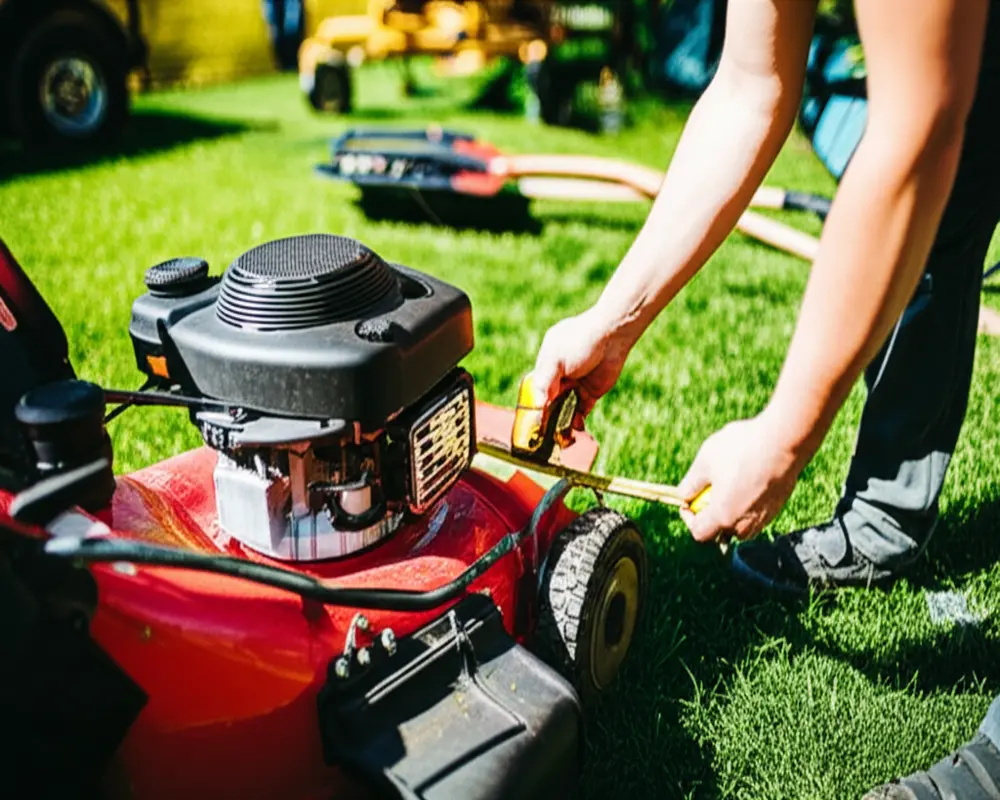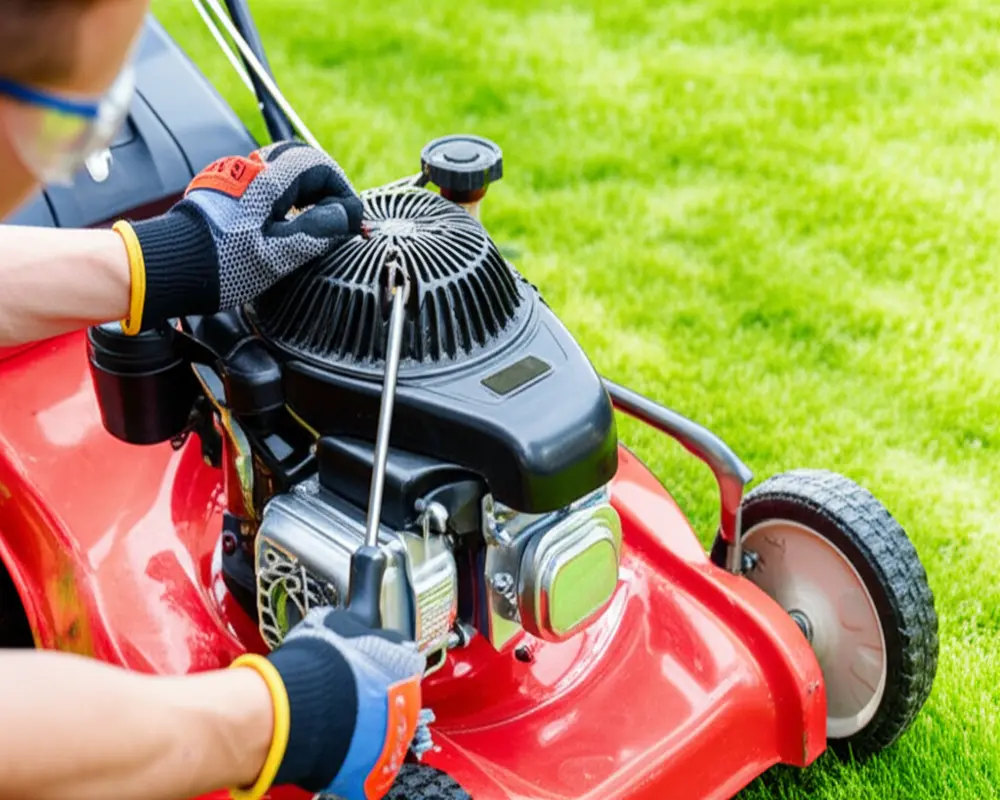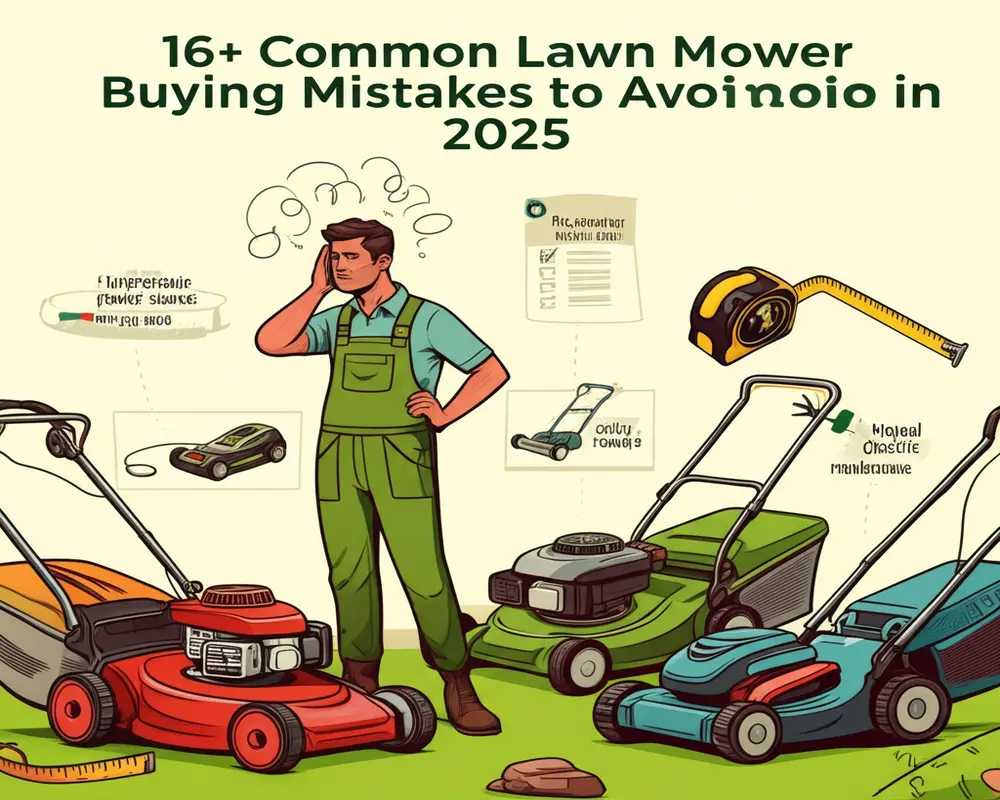16+ Common Lawn Mower Buying Mistakes to Avoid (And How to Choose Wisely) in 2025
Purchasing a lawn mower may appear straightforward at first glance, but this investment is much more than just selecting a machine based on price or brand. A lawn mower buying mistake can lead to inefficiency, frustration, and even damage to your lawn. As we approach 2025, the variety of options and features has expanded, making informed decisions all the more crucial. This guide aims to equip you with the knowledge to avoid the most frequent pitfalls and help you select the mower that suits your unique needs, lifestyle, and budget.
Thank you for reading this post, don't forget to subscribe!The benefits of steering clear of common errors include saving money, preventing unnecessary hassle, maintaining your lawn’s health, and ultimately enjoying a satisfying mowing experience that keeps your yard pristine.
Understanding Your Specific Needs: Pre-Purchase Clarity
1. Ignoring Your Lawn’s Specific Needs (Size, Terrain, Grass Type)
One of the most frequent mistakes people make when buying a lawn mower is overlooking the unique characteristics of their lawn. Your yard’s size, the terrain’s slope or flatness, and the type of grass you have all influence which mower will perform best.
Failing to match the mower to these factors often results in a mismatch—either a machine too powerful and cumbersome or one too weak and inefficient. For example, a small electric mower might struggle with a hilly, uneven lawn, while a large gas mower could be overkill for a tiny flat yard.
To avoid this, start by measuring your lawn accurately in square feet or acres (or square meters/hectares). Analyze the terrain—are there steep slopes, rocky areas, or tight corners? Identify your grass type, as some require specific cutting heights and frequencies.

2. Overlooking Your Physical Capabilities & Lifestyle
Another essential aspect is an honest assessment of your physical strength, stamina, and time availability. A heavy, push-style mower can become a burden and lead to fatigue, causing you to avoid regular mowing. Conversely, a self-propelled or riding mower might be the better choice if you have a large lawn or limited physical ability.
Consider also your lifestyle. If you prefer quick, low-effort tasks, look for electric start features or battery-powered models that require less maintenance and fuss. The right mower should complement your routine, not complicate it.
3. Failing to Set a Realistic Budget (Ignoring Long-Term Costs)
Many buyers focus solely on the initial price tag, only to face hidden expenses down the road. The cheapest mower upfront may entail higher fuel consumption, frequent repairs, or costly replacement parts. On the other hand, premium models might offer better durability and efficiency but come at a higher initial investment.
Set a budget that balances upfront costs with long-term value. Factor in fuel or electricity costs, maintenance expenses, and expected lifespan. For a detailed understanding of maintenance needs, consider resources like common lawn mower maintenance issues.
4. Neglecting Storage Space & Fuel/Power Source Accessibility
Before settling on a mower, assess your available storage space. Oversized machines can be challenging to store, especially if space is limited in your garage or shed. Similarly, consider accessibility to fuel or power sources. Gas mowers need a safe place to store fuel, while electric models require convenient outlets or charging stations.
Mower Specifications, Features & Quality Mistakes
5. Choosing the Wrong Power Source (Gas, Corded Electric, Battery, Manual)
The power source is fundamental to mower performance and convenience. Gas-powered mowers offer robust power for large or tough lawns but involve noise, emissions, and maintenance. Corded electric mowers are quieter and eco-friendlier but limit mobility due to cord length. Battery-powered mowers provide a balance with portability and lower emissions but have limited run times. Manual reel mowers are eco-friendly and low-cost but best suited for small, flat lawns.
Match the power source to your lawn size, terrain, and environmental preferences. Refer to environmental considerations discussed by the US EPA for guidance on emissions and sustainability.
6. Selecting Incorrect Deck Size
The cutting deck width determines how much grass the mower can cut in one pass. A too-small deck means longer mowing times, while a deck that’s too wide can be difficult to maneuver around obstacles or tight spaces.
Balance deck size with your yard’s layout. For a sprawling lawn, a deck width of 21 to 22 inches (53 to 56 cm) or more might be efficient. For smaller or intricately landscaped yards, a deck between 16 to 20 inches (41 to 51 cm) offers better control.

7. Overlooking Essential Cutting & Discharge Features
How your mower handles grass clippings impacts both lawn health and cleanup. Key features include mulching, bagging, and side discharge options:
- Mulching: Finely chops clippings to return nutrients to the soil.
- Bagging: Collects clippings for disposal, ideal if you want a tidy lawn.
- Side Discharge: Quickly expels clippings, useful for tall or dense grass.
Choosing a mower with the right combination of these features depends on your lawn care goals and preferences.
8. Ignoring Engine Quality & Horsepower (Gas Mowers)
For gas models, the engine’s quality and horsepower are critical. An underpowered engine may stall on thick or tall grass and produce uneven cuts. Opt for reputable brands known for reliability and choose horsepower appropriate for your lawn size—typically ranging from 3.5 to 6.5 HP.
9. Disregarding Build Quality, Materials & Durability
Durability affects how long your mower lasts and how well it withstands regular use and weather exposure. Look for steel or aluminum decks rather than plastic, sturdy wheels, and quality construction overall. A well-built mower resists rust, reduces repair frequency, and maintains performance.
10. Neglecting Safety Features
Safety is paramount when operating lawn mowers. Essential safety features include blade brakes that stop blades quickly when you release the handle, safety locks to prevent accidental starts, and blade guards. Skipping these features can increase the risk of injury.
11. Not Considering Adjustability & Ergonomics
Comfort during use affects how often and how well you mow. Adjustable handle heights, easily changeable cutting heights, and ergonomic grips reduce strain and fatigue. Testing these features before buying or reading detailed user reviews can prevent discomfort post-purchase.
Purchase Process & Post-Purchase Mistakes
12. Buying Solely on Price or Brand Name
While price and brand are important, they should never be the sole factors. The cheapest model might lack essential features, and a famous brand may not offer the best fit for your lawn. Research specifications and compare features carefully.
13. Failing to Read User Reviews & Expert Ratings
Real-world experiences from users and experts reveal strengths and weaknesses not obvious from specs alone. Websites like Consumer Reports and The Spruce provide trusted reviews and ratings to inform your decision.
14. Overlooking Warranty, Return Policy & After-Sales Support
Understanding warranty terms protects you against defects and malfunctions. A flexible return policy and responsive customer service are also valuable, especially for complex machines that may require troubleshooting or parts replacement.
15. Skipping Initial Setup, Assembly & First Use Checks
Improper assembly can cause operational problems or even hazards. Always follow the manufacturer’s manual carefully, check fluid levels, tighten hardware, and test the mower in a safe area before regular use.
16. Underestimating Ongoing Maintenance Needs
Regular maintenance extends mower life and ensures consistent performance. This includes blade sharpening, oil changes, air filter cleaning, and checking belts and cables. Neglecting maintenance leads to poor cutting quality and expensive repairs. For guidance on upkeep, explore detailed tips on garden tool maintenance that can be applied to mower care as well.

Conclusion
Choosing the right lawn mower in 2025 necessitates a careful balance of understanding your lawn’s needs, evaluating mower features and quality, and navigating the purchase process wisely. By avoiding these lawn mower buying mistakes, you empower yourself to make informed decisions that save money, reduce frustration, and promote a healthy, beautiful lawn.
Remember, a well-chosen mower is not just a tool but a long-term partner in your lawn care routine.
Use this guide as a checklist for your next purchase to ensure you invest in a mower that fits your lifestyle, environment, and expectations perfectly.
Frequently Asked Questions
- What is the best power source for a lawn mower?
- The best power source depends on your lawn size and preferences. Gas mowers are powerful for large lawns; electric models are quieter and eco-friendlier; battery-powered mowers offer portability with limited runtime; manual reel mowers suit small, flat lawns.
- How do I measure my lawn to choose the right mower?
- Measure your lawn’s length and width to calculate the total area in square feet or meters. This helps determine the mower’s required deck size and power.
- Why is mower deck size important?
- The deck size affects how much grass the mower cuts per pass. Too small prolongs mowing; too large reduces maneuverability in tight spaces.
- How often should I maintain my lawn mower?
- Regular maintenance is essential—sharpen blades every season, change oil according to manufacturer guidelines, clean air filters periodically, and check belts and bolts routinely.
- Are electric mowers better for the environment?
- Yes, electric mowers produce fewer emissions and less noise than gas-powered models, contributing to a cleaner environment.

